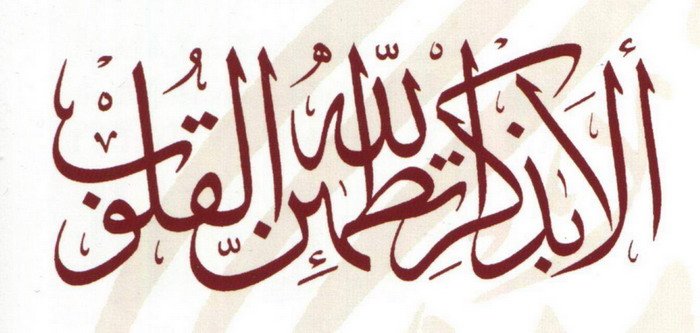Salam. Please find some Adab of dhikr taken from the ‘Mawsuah’ (21/242). As always any corrections are welcome from fiqh experts.
Adab of Dhikr
Rememberance of Allah (Most High) has certain adab which have been mentioned by the scholars as being of benefit.
Seeking Help from Allah (Most High) With Dhikr
The Prophet (Allah bless him and give him peace) encouraged Muadh to say: “O Allah, help me wth your dhikr and worshipping you well” [Reported by Ahmad (5/437) with a similar wording, al-Hakim (3/273-274) who graded it as Sahih and al-Dhahabi agreed]
That The One Making Dhikr Being Ritually Pure
The evidence of this is from the hadith of al-Muhajir bin Qunfudh who said: “I saw the Prophet (Allah bless him and give him peace) relieving himself, I greeted him but he did not reply until he had performed wudu and then excused himself to me saying: I disliked to make dhikr of Allah except in a state of purity…”
Ibn Allan said: It is taken from the hadith that it is superior that adhkar are not recited except in the most perfect of states, such as purity from both states of ritual impurity, and the purity of the mouth from filth. [Al-Futuhat al-Rabbaniyyah (1/396)]
However it is not a condition because it is established that the Prophet (Allah bless him and give him peace): Would make rememberance of Allah in all of his states. [Muslim (1/282)]
And that: When He would exit from the place of relieving oneself he would say: “Ghufranak”. [Al-Tirmidhi (1/12) and said it was a Hasan Gharib Hadith.
This dhikr (whilst not being in a ritual impurity) is agreed upon as being permissible with the heart and tongue for the one in a state of minor and major ritual impurity, a woman menstruating and with post natal bleeding. [Al-Futuhat al-Rabbaniyyah (1/127)]
The view of the Hanafi scholars as in ‘Al-Hidayah’ and its commentaries is that it is desirable for the one making dhikr to be in a state of wudu. From these cases is the Adhan and Iqamah, for if he made Adhan without wudu it is permissible without it being disliked according to the Zahir al-Riwayah as is the case with all forms of dhikr.
If a person was to pronounce the Iqamah without wudu it is permissible along with it being disliked due to that which it entails from a seperation between the Iqamah and the prayer due to the person being busied with the actions of wudu, and the Iqamah is legislated to be directly before the prayer without any gap. [Al-Hidayah and Fath al-Qadir (1/176, 414)
What is understood from the statement of the Hanafi’s is that the the desirability of the being in a state of ritual purity is in specific situations situations such as the Friday sermon (khutbah) and the Adhan. [Fath al-Qadir (1/414)]
In Dur al-Mukhtar it is mentioned: Wudu for general dhikr is desirable, even for a junub (person in major ritual impurity). Leaving it is against the optimum (khilaf al-awla) [Dur al-Mukhtar and Hashiyah Ibn Abidin (1/117, 195)]
Using A Toothstick
Al-Shawkani said: Cleaning of the mouth at the time of dhikr with the toothstick (siwak) is a good etiquette, because it is the place where the dhikr of the prayer will be. It is authentically reported: “That he (Allah bless him and give him peace) when he was greeted by one of his companions made tayammum from a wall and then replied to him'” This is just for replying to the greeting so the rememberance of Allah the Glorified is more deserving. [Sharh Hisn al-Hasin (p.32) Nuzul al-Abrar (p.29) The hadith cited be found with a similar wording in al-Bukhari (al-Fath 1/444)].


Salam
additional etiquettes of making dhikr mentioned by our teachers include:
1. facing the qibla
2. setting aside a special area in the home for prayer anf dhikr
3. freeing oneself from all distractions including family members, phones, paintings on the wall etc
4. closing one’s eyes if it helps with concentration
[…] http://daralhadith.org.uk/?p=1418 […]